Audi Q3 vs Nissan Juke - Differences and prices compared
Compare performance (272 HP vs 143 HP), boot space and price (38200 £ vs 21400 £ ) at a glance. Find out which car is the better choice for you – Audi Q3 or Nissan Juke?
Costs and Efficiency:
Price and efficiency are often the first things buyers look at. Here it becomes clear which model has the long-term edge – whether at the pump, the plug, or in purchase price.
Nissan Juke has a clearly advantage in terms of price – it starts at 21400 £ , while the Audi Q3 costs 38200 £ . That’s a price difference of around 16843 £.
Fuel consumption also shows a difference: Audi Q3 manages with 1.70 L and is therefore clearly more efficient than the Nissan Juke with 4.70 L. The difference is about 3 L per 100 km.
Engine and Performance:
Power, torque and acceleration are the classic benchmarks for car enthusiasts – and here, some clear differences start to show.
When it comes to engine power, the Audi Q3 has a significantly edge – offering 272 HP compared to 143 HP. That’s roughly 129 HP more horsepower.
In acceleration from 0 to 100 km/h, the Audi Q3 is decisively quicker – completing the sprint in 5.70 s, while the Nissan Juke takes 10.10 s. That’s about 4.40 s faster.
In terms of top speed, the Audi Q3 performs clearly perceptible better – reaching 240 km/h, while the Nissan Juke tops out at 180 km/h. The difference is around 60 km/h.
There’s also a difference in torque: Audi Q3 pulls convincingly stronger with 400 Nm compared to 200 Nm. That’s about 200 Nm difference.
Space and Everyday Use:
Beyond pure performance, interior space and usability matter most in daily life. This is where you see which car is more practical and versatile.
Both vehicles offer seating for 5 people.
In curb weight, Nissan Juke is distinct lighter – 1274 kg compared to 1635 kg. The difference is around 361 kg.
In terms of boot space, the Audi Q3 offers slightly more room – 488 L compared to 422 L. That’s a difference of about 66 L.
In maximum load capacity, the Audi Q3 performs barely noticeable better – up to 1386 L, which is about 81 L more than the Nissan Juke.
When it comes to payload, Audi Q3 noticeable takes the win – 535 kg compared to 427 kg. That’s a difference of about 108 kg.
Who comes out on top?
Overall, the Audi Q3 shows itself to be dominates this comparison and secures the title of DriveDuel Champion.
It convinces with the more balanced overall package and proves to be the more versatile choice for everyday use.
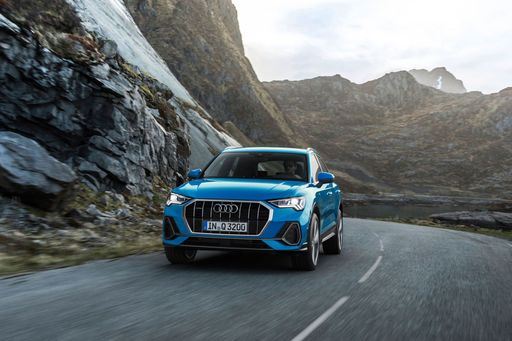
Audi Q3
Costs and Consumption
View detailed analysis
Engine and Performance
View detailed analysis
Dimensions and Body
View detailed analysis
Audi Q3
The Audi Q3 feels like a grown-up compact SUV with premium polish and city-friendly agility, the sort of car that makes weekend escapes and daily commutes equally satisfying. Inside, you get quality materials and smart packaging that keep things practical without skimping on style, so it’s an easy pick for buyers who want luxury without the drama.
details
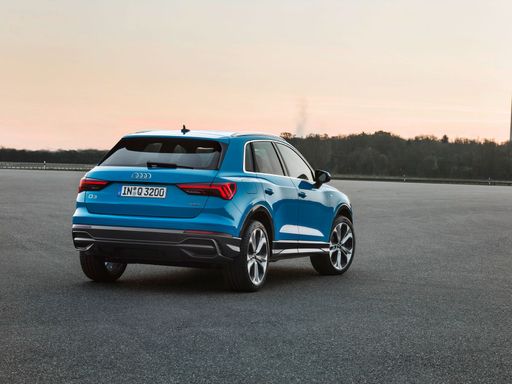
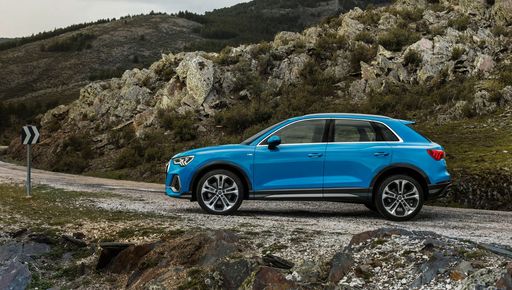
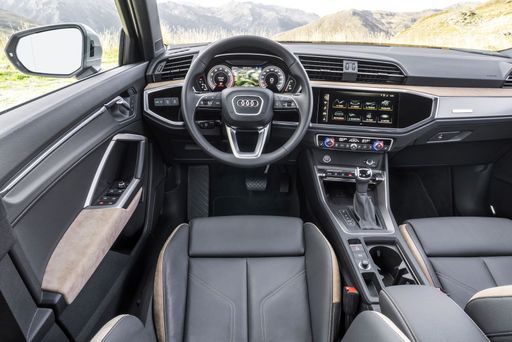
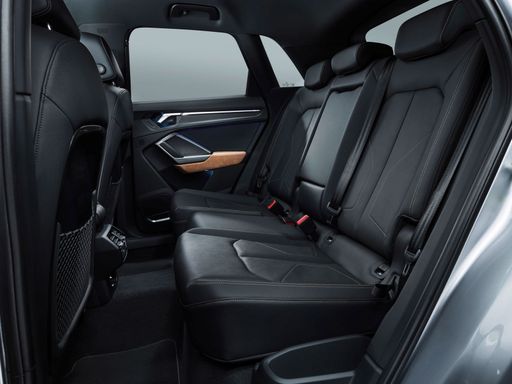
Nissan Juke
The Nissan Juke is a pocket-sized crossover that refuses to blend in, with quirky styling and a cheeky stance that turns heads at every traffic light. It’s ideal for shoppers who value personality and nimble urban driving over maximum practicality, delivering surprising pep and a well-equipped feel for everyday fun.
details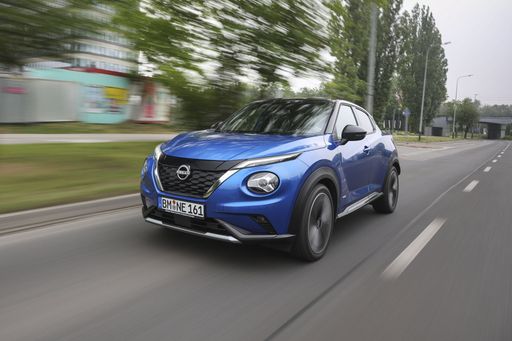
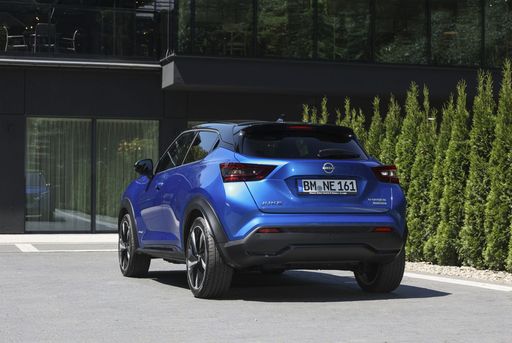
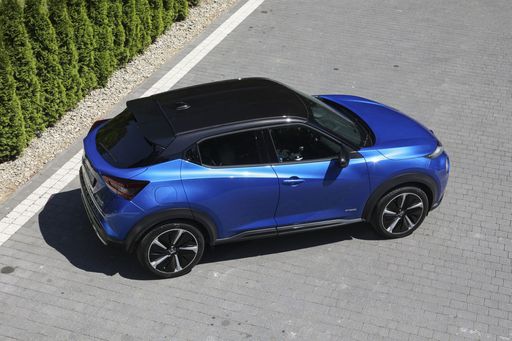

Costs and Consumption |
|
|---|---|
|
Price
38200 - 52900 £
|
Price
21400 - 30100 £
|
|
Consumption L/100km
1.7 - 8.6 L
|
Consumption L/100km
4.7 - 6 L
|
|
Consumption kWh/100km
-
|
Consumption kWh/100km
-
|
|
Electric Range
118 - 119 km
|
Electric Range
-
|
|
Battery Capacity
19.70 kWh
|
Battery Capacity
0.60 kWh
|
|
co2
39 - 195 g/km
|
co2
107 - 136 g/km
|
|
Fuel tank capacity
45 - 60 L
|
Fuel tank capacity
46 L
|
Dimensions and Body |
|
|---|---|
|
Body Type
SUV
|
Body Type
SUV
|
|
Seats
5
|
Seats
5
|
|
Doors
5
|
Doors
5
|
|
Curb weight
1635 - 1900 kg
|
Curb weight
1274 - 1405 kg
|
|
Trunk capacity
375 - 488 L
|
Trunk capacity
354 - 422 L
|
|
Length
4531 mm
|
Length
4210 mm
|
|
Width
1859 mm
|
Width
1800 mm
|
|
Height
1559 - 1601 mm
|
Height
1593 mm
|
|
Max trunk capacity
1196 - 1386 L
|
Max trunk capacity
1237 - 1305 L
|
|
Payload
505 - 535 kg
|
Payload
405 - 427 kg
|
Engine and Performance |
|
|---|---|
|
Engine Type
Petrol MHEV, Petrol, Plugin Hybrid, Diesel
|
Engine Type
Petrol, Full Hybrid
|
|
Transmission
Automatic
|
Transmission
Manuel, Automatic
|
|
Transmission Detail
Dual-Clutch Automatic
|
Transmission Detail
Manual Gearbox, Dual-Clutch Automatic, Automatic Gearbox
|
|
Drive Type
Front-Wheel Drive, All-Wheel Drive
|
Drive Type
Front-Wheel Drive
|
|
Power HP
150 - 272 HP
|
Power HP
114 - 143 HP
|
|
Acceleration 0-100km/h
5.7 - 9.2 s
|
Acceleration 0-100km/h
10.1 - 11.8 s
|
|
Max Speed
208 - 240 km/h
|
Max Speed
166 - 180 km/h
|
|
Torque
250 - 400 Nm
|
Torque
200 Nm
|
|
Number of Cylinders
4
|
Number of Cylinders
3 - 4
|
|
Power kW
110 - 200 kW
|
Power kW
84 - 105 kW
|
|
Engine capacity
1498 - 1984 cm3
|
Engine capacity
999 - 1598 cm3
|
General |
|
|---|---|
|
Model Year
2025
|
Model Year
2024
|
|
CO2 Efficiency Class
E, G, B
|
CO2 Efficiency Class
D, E, C
|
|
Brand
Audi
|
Brand
Nissan
|
Is the Audi Q3 offered with different drivetrains?
The Audi Q3 is available as Front-Wheel Drive or All-Wheel Drive.




